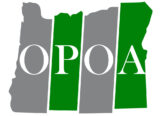

Samantha Bayer
OPOA Supports Family Farms With Agritourism Campaign
As the leaves turn, farms around the state are gearing up for one of their busiest times of the year – pumpkin patch season. While corn mazes, cow trains, and harvest festivals may be treasured past times for most Oregonians, most folks don’t realize how important these activities are for family farms.
The business of farming is tough, and farmers are experiencing historically high operating costs. Income from agritourism events, like farm-to-table dinners or pumpkin patches, can help offset those costs. Here’s what the owners of Topaz Farm said in an interview to KATU this week:
Because we have agritourism, we can now pay living wages to our field workers, and we can have way more field workers. We can afford that. Without agritourism, our staff would be a fraction of what it was, and we wouldn’t be able to pay them what we do.
Even more important, agritourism events bring people out farms and help close the urban-rural divide. When a kid goes to the pumpkin patch, that might be the first time they ever visit a farm, see livestock, or learn where they food comes from. Farm-to-table dinners give people the chance to eat locally grown food on-site. Building the connection between place and taste can be a powerful tool in supporting local food systems.

Land use law hamstrings farmers.
Unfortunately, Oregon’s land use system isn’t supportive of agritourism, and imposes significant restrictions on farmers who need to diversify their income streams and attract customers out to their farms.
As just one example, unlike every other business in Oregon, farmers who host promotional events through their farmstand are limited in how much income they can earn.
Specifically, the sale of the incidental items and fees from promotional activity cannot exceed 25 percent of the total annual sales of the farmstand. If income from the promotional activities or incidental items exceeds 25 percent, the farmer can be subject to enforcement and can potentially lose their farmstand permit altogether.
As a result, ticket sales for promotional agritourism events like harvest festivals, corn mazes, hayrides, farm-to-table dinners, or farm tours cannot exceed 25 percent of the farm stand’s annual crop sales. The same goes with sales of merchandise or incidental items. If a farm sells hats, T-shirts, or any other item with their logo on it from a farmstand, those sales cannot exceed 25 percent of the farmstand’s total sales.
In years where farmers experience crop loss or traditional crop sales are low, many farmers can find themselves out of compliance with this income restriction quickly, which puts their farmstand permit and even their farm on the line.
Farmers call for change.
Oregon has lost over 2,069 farms since 2017, and over 660,000 acres of farmland are sitting idle, unable to earn at least $1,000 in farm income. Despite common misconception, housing development and “urban sprawl” are not the causes of Oregon’s loss of farms. In fact, almost all of land that was zoned for Exclusive Farm Use at the inception of our planning system is still zoned for farm use today.
The reality is that rising supply costs, lack of available workforce, and unprecedented weather conditions have all squeezed Oregon’s farmers to the point where many of them are not profitable. To make matters worse, Oregon continues to add layers of costly regulation to the backs of our farm families, and our land use planning system restricts farmers’ ability to promote their businesses and earn income during these challenging times.
This Census is a wakeup call for everyone who loves and supports agriculture. We are at a pivotal moment. If we want to preserve Oregon’s family-farms, we must abandon the status quo and find new ways to support farmers and ranchers.
OPOA Partners With Farmers to Launch Campaign.
In an effort to help farm families, OPOA has helped launch the Keep Oregon Farming campaign, which is a grassroots movement aimed at uplifting farm families and supporting their ability to diversify their income streams during challenging economic times.
The Keep Oregon Farming campaign is led by farmers who are directly impacted by these challenges. The campaign seeks to engage the public, policymakers, and community leaders in a conversation about the critical role that family farms and agritourism play in Oregon’s economy.
Looking to help? OPOA invites all supporters to take the following action today!
- Visit KeepOregonFarming.com
- SHARE the campaign with friends and family
- Sign the letter to Governor Kotek below!
The opinions expressed in this post are those of the author and do not represent the opinions or positions of any party represented by the OPOA Legal Center on any particular matter.
